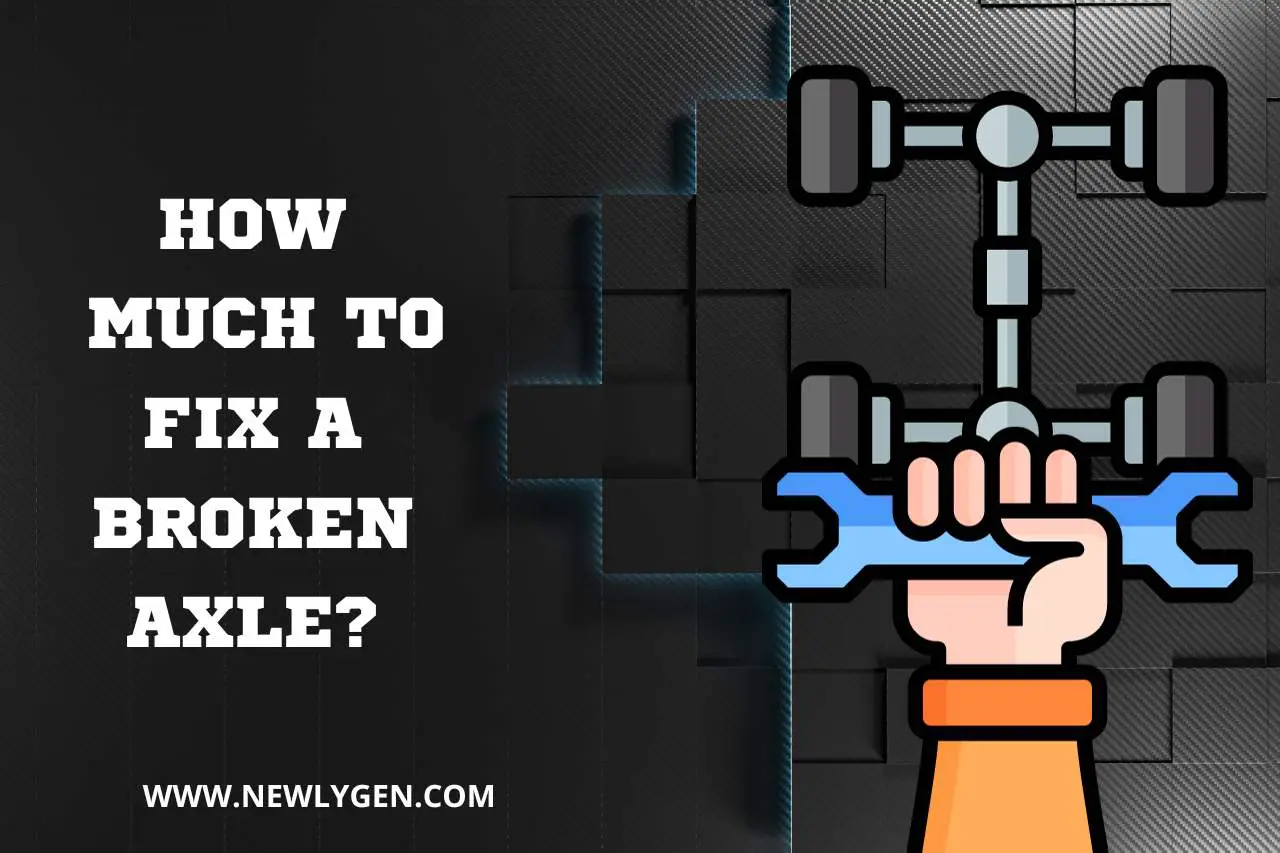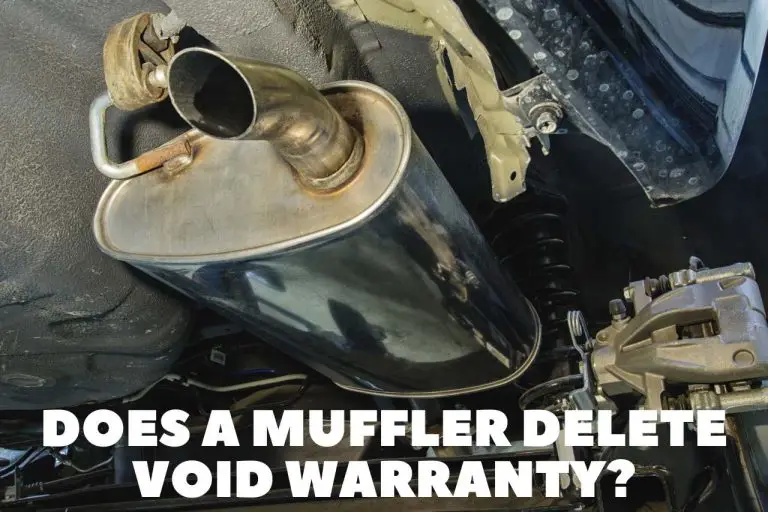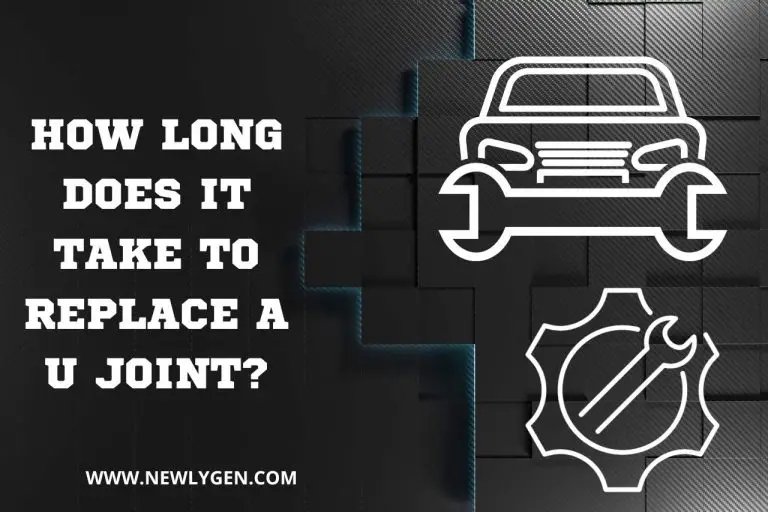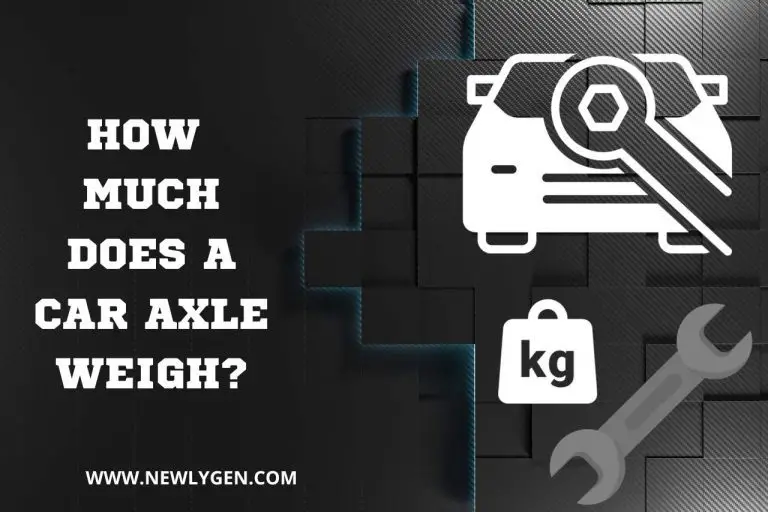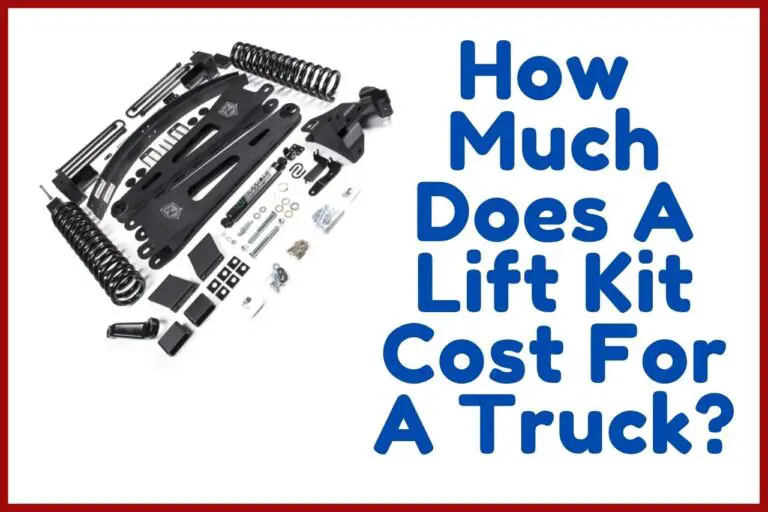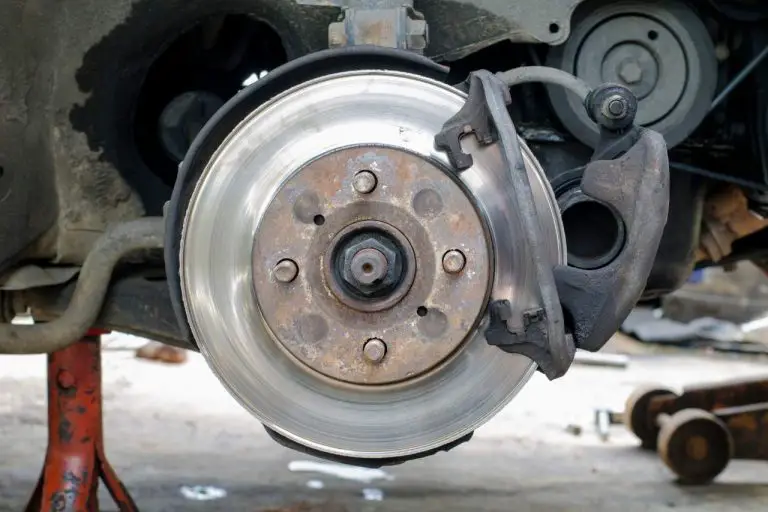How Much to Fix a Broken Axle? (Pricing & Considerations)
It can be dangerous to drive with a broken axle since the wheels do not receive enough power. Thus, a broken axle calls for an immediate repair or replacement. But how much does it cost to fix a broken axle? If you want to get an idea about the repair cost, we are here to help you! In this guide, we have explained the costs of repair and replacement. Eventually, we are going to analyze whether repairing or replacing is the better option. Thus, roll your eyes on this blog post before heading to the service station!
How Much to Fix a Broken Axle?
Repairing a broken axle can cost between $550 and $1500, a range influenced by several important factors. Let’s focus on those determinants.
- Type of Axle:
- CV Axles: Found in front-wheel-drive cars, they typically cost $600-$1,400 to fix.
- Solid Axles: Common in trucks and rear-wheel-drive cars, repairs can range from $1,000-$2,000.
- Vehicle Size and Make:
- Larger vehicles with heavier axles usually cost more to fix and vice versa.
- Luxury or performance vehicles often have higher repair costs due to pricier parts and complex mechanisms.
- The extent of Damage:
- Minor issues like a CV joint replacement are less expensive.
- Severe damage requiring a full axle replacement will be on the higher end.
- Labor Costs:
- Undoubtedly, costs vary by region, with city mechanics often charging more than those in rural areas.
- Independent mechanics might offer lower rates than dealerships.
- Additional Repairs:
- If the broken axle has damaged other parts like brakes or suspension, this will increase the total repair cost.
It would always be best to get a detailed quote from a trusted mechanic for the most accurate estimate tailored to your vehicle and its specific needs.
How Much Does It Cost To Replace A Car Axle?
In order to replace a car axle, you will spend from $300 to $950. The cost to replace a car axle can vary significantly based on the type of vehicle, the axle type, labor rates, etc. Here’s a general overview:
CV axles are common in front-wheel drive and some all-wheel drive vehicles. Replacing a CV axle can cost between $300 and $1,500 per axle.
Solid axles are typically found in rear-wheel drive and some four-wheel drive vehicles, and these can be more expensive to replace, with costs ranging from $800 to $2,000 per axle.
Besides, the quality of the parts and labor costs can change the overall cost. When you visit a professional mechanic, he will check the vehicle and provide an accurate estimate.
Is It Worth Fixing a Broken Axle?
Deciding whether to repair or replace a broken axle depends on various factors. Sometimes, it can be worth fixing a broken axle instead of replacing it. From what we’ve seen, here’s a straightforward guide to help you make the right choice:
-
Factors Favoring Repair:
- Minor Damage: Repairing a single component like a CV joint can be cost-effective.
- Overall Vehicle Condition: If the rest of your car is in good shape, it will be enough to repair the axle.
- Sentimental Value: If you’re really attached to your car, repairing might feel more worthwhile.
-
Factors Favoring Replacement:
- Severe Damage: A badly damaged or unfixable axle needs replacing.
- High Repair Costs: If fixing the axle costs nearly as much as the replacement cost, consider replacing it.
- Multiple Issues: When your car has other big problems, replacing it might be more sensible.
- Safety: If you’re worried about safety, replacing the axle can give you peace of mind.
- Upgrading: A broken axle could be a chance to get a newer car that better meets your needs.
-
Additional Considerations:
- Part Availability: Make sure the needed parts are available and affordable.
- DIY Skills: If you’re handy with car repairs, you could save money by doing it yourself.
- Budget: Think about what you can realistically afford, whether it’s repair or replacement. Sometimes, replacement costs can be lower than repair.
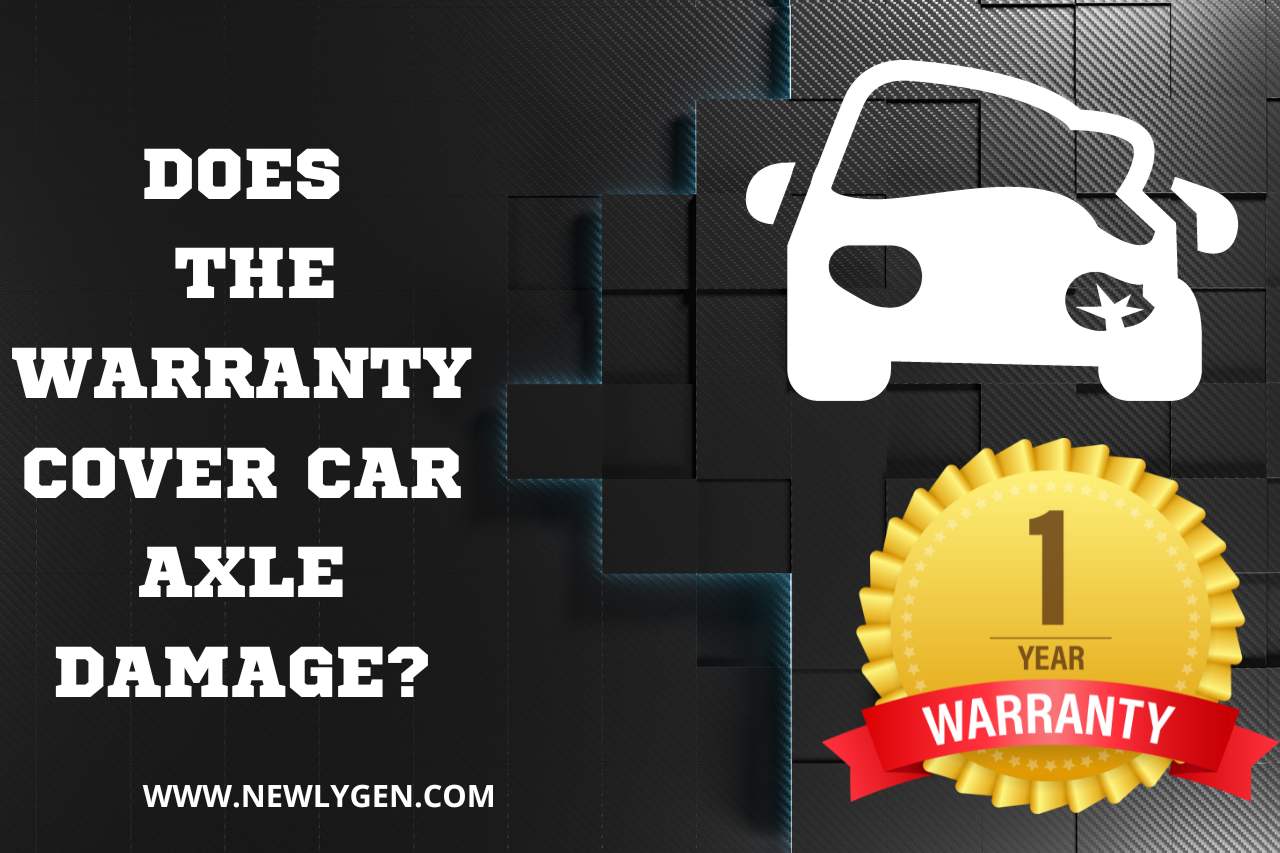


Does the Warranty Cover Car Axle Damage?
Yes, certain types of warranties cover car axle damages. Determining if your car warranty covers axle damage involves checking your specific warranty terms. Based on our experience, here’s a quick guide to help:
-
Types of Warranties:
- Powertrain Warranty: Usually covers major components like axles, especially if the damage is due to manufacturing faults.
- Extended Warranty: These can be broader and might cover axle repairs, depending on the policy.
- Bumper-to-Bumper Warranty: Covers most parts of your car, including axles, but usually excludes damage from wear and tear or accidents.
There are some other factors that affect the warranty coverage:
- Cause of Damage: Damage from normal use typically isn’t covered, but defects or faulty parts might be.
- Warranty Conditions: There might be some exclusions or limitations specific to axle repairs.
- Mileage and Age Limits: Warranties often have limits, so check if your car still falls within them.
According to the aforementioned factors, here are our recommendations.
- Review Your Warranty Booklet: Understand what’s included and excluded in your warranty.
- Contact Dealership or Warranty Provider: If in doubt, ask them directly about your axle damage coverage.
- Get a Professional Diagnosis: A mechanic’s report on the damage can be vital when discussing with your warranty provider.
You May Also Like
Does Axle Damage Total a Car? Find Out Here!
CV Axle Won’t Seat All the Way – (Expert Tips & Advice)
How to Grease Trailer Axle? Safety First!
How Much does a Car Axle Weigh? Key Differences Unveiled!
How to Know If Car Axle is Bad? Making the Right Choice!
How Long does It Take to Replace a U Joint? Efficiency Matters!
How Long Can you Drive with a Bad U Joint? Understanding the Impact!

